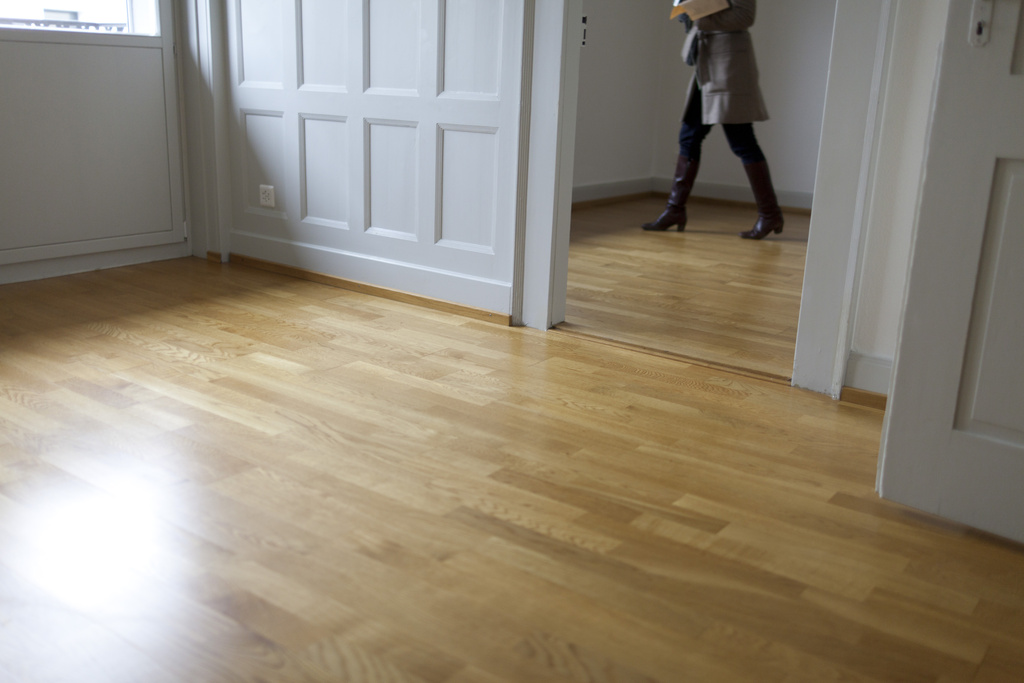Foreign firm strategy taxes cantons

One of the key questions for cantons competing to attract foreign firms is not just tax rates, but whether to join forces or go it alone with promotional campaigns.
Just one year after joining a cantonal alliance, Fribourg is already wondering whether the expense of joint marketing is worth it. Aargau decided to exit a promotional bloc last year, but other cantons are reaping huge benefits.
Marketing business locations in far flung countries is an expensive operation. Swiss cantons compete with many countries, that have sophisticated promotional platforms, to convince firms from China, India and the United States to set up regional headquarters inside their borders.
The process requires permanent representation in the target countries and frequent visits from officials. It is little wonder that some cantons choose to pool know-how and financial clout to flex their muscles to greater effect around the world.
The Greater Geneva and Bern Area (GBBA) economic development agency was set up at the start of 2010 to promote the wares of cantons Geneva, Bern, Valais, Vaud, Neuchâtel and Fribourg. Each canton contributes to a central fund worth SFr4 million ($4.3 million) a year.
Unripe fruit
After one year, the region attracted 54 new foreign companies – two thirds of which went to Geneva or Vaud, and only four to Fribourg. This had led to Fribourg threatening to exit the alliance.
“We are not satisfied with the initial results,” cantonal economic director Beat Vonlanthen told Swiss public radio. “We must decide if, and how, to continue working [in the GBBA].”
GBBA director Philippe Monnier said that Fribourg had a “legitimate complaint” but urged the canton to persevere rather than come to a hasty decision. The 54 firms that came to the area last year were not a result of GGBA’s activities, he said, which have not yet had time to bear real fruit.
“We only started our promotional activities in the middle of 2010 and it will be a long term endeavour,” Monnier told swissinfo.ch. “It will take two or three years before we see concrete results.”
Monnier agreed that his organisation should work to spread out the distribution of incoming companies. With this in mind it is targeting foreign nanotech and IT companies that would match the existing strengths of Fribourg.
Poor returns
“It is very important to have a better balance among our cantons,” he said. “We are expanding our operations in Germany and into different sectors, but we do not actively try to push companies into one canton or another. It is for them to decide the location.”
Monnier is convinced that the pressure created on infrastructure in Geneva, resulting in rapidly rising house prices and limited availability in international schools, will push more foreign firms towards Fribourg and Neuchâtel in the near future.
Fribourg is not the only canton to witness politicians questioning the value of inter-cantonal promotion agencies.
At the end of last year, Aargau decided to terminate a five year collaboration with the Greater Zurich Area agency – a body that represents seven cantons in eastern Switzerland.
Aargau saw only four companies relocate to the canton in five years, during which it contributed SFr2.7 million towards promotion activities.
Some cantons, such as Obwalden, have managed to dramatically boost their share of foreign firms without the need for promotional alliances or proximity to large cities. Obwalden generated its own publicity by slashing tax rates in 2006.
Benefits too
But on the other side of the coin, many other cantons profit from joining forces and marketing wide regions as opposed to single locations.
Schaffhausen has enjoyed a great deal of success in attracting overseas companies in the past few years. It enjoys an inflow of between 20 to 30 foreign firms a year that generate around SFr50 million in tax revenues annually – around ten per cent of the total corporate levy.
Companies mainly arrive from the US with such recent newcomers as Tyco Electronics and specialist materials firm Cabot. They came thanks to a competitive tax rate, proximity to the German market and Zurich airport and quality of living for workers, according to Marcus Cajacob, vice-president of Schaffhausen’s economic promotion team.
But membership of the Greater Zurich Area promotional agency also played its part, Cajacob added. “We are a small canton and we do not have the capacity to market ourselves all over the world,” he told swissinfo.ch
With GZA charging cantons SFr1.50 per inhabitant, Schaffhausen shells out around SFr130,000 a year to be a member, making its small size more advantageous.
But Cajacob warned cantons not to expect their investment to start paying off too quickly. “It is obvious that you cannot get a lot of hot leads after just one or two years,” he said.
“It takes a bit of time to enjoy the benefits of joining a promotion agency.”
Osec Business Network Switzerland is the competence centre for Swiss foreign trade promotion. As well as promoting exports, it also promotes Switzerland as a location, organising about 100 events a year.
Its information about foreign companies doing business in Switzerland is handed down to the cantons.
The Greater Zurich Area promotion agency includes cantons Glarus, Graubünden, Schaffhausen, Schwyz, Solothurn, Zug and Zurich.
The Greater Geneva Berne area includes cantons Bern, Fribourg, Geneva, Neuchâtel, Valais and Vaud.
Low corporate tax rates, a high quality of life, a highly skilled workforce, excellent infrastructure, a central location and a well established financial centre are among the reasons that Switzerland is a magnet for foreign firms.
Many foreign companies have set up headquarters or other operations in Switzerland in recent years, including Google, Philip Morris, Caterpillar, Chiquita, Ebay and Dow Chemicals.
The numbers have been recently boosted by the arrival of reinsurance companies escaping a US tax crackdown on the Caribbean islands and commodities firms.
Raw materials traders such as Transocean, Rosneft and Bashneft have either moved operations in the past few months or are said to be considering such a move.
According to Ernst & Young, Neuchâtel has the highest effective combined cantonal and federal corporate tax rate of 24.5%. Voters were due to have decided on slashing those rates in half on April 3, but the process has been delayed by a court order.
The lowest effective tax rate is in Appenzell Inner Rhodes (14%), while many cantons are thought to be considering moves to lower their rates further.
Cantons also award tax breaks on the foreign derived earnings of many firms – a strategy that the EU claims is anti-competitive.
An ongoing row between Switzerland and the EU remains unresolved, although Switzerland has said it may cede some ground on the issue.

In compliance with the JTI standards
More: SWI swissinfo.ch certified by the Journalism Trust Initiative














You can find an overview of ongoing debates with our journalists here . Please join us!
If you want to start a conversation about a topic raised in this article or want to report factual errors, email us at english@swissinfo.ch.